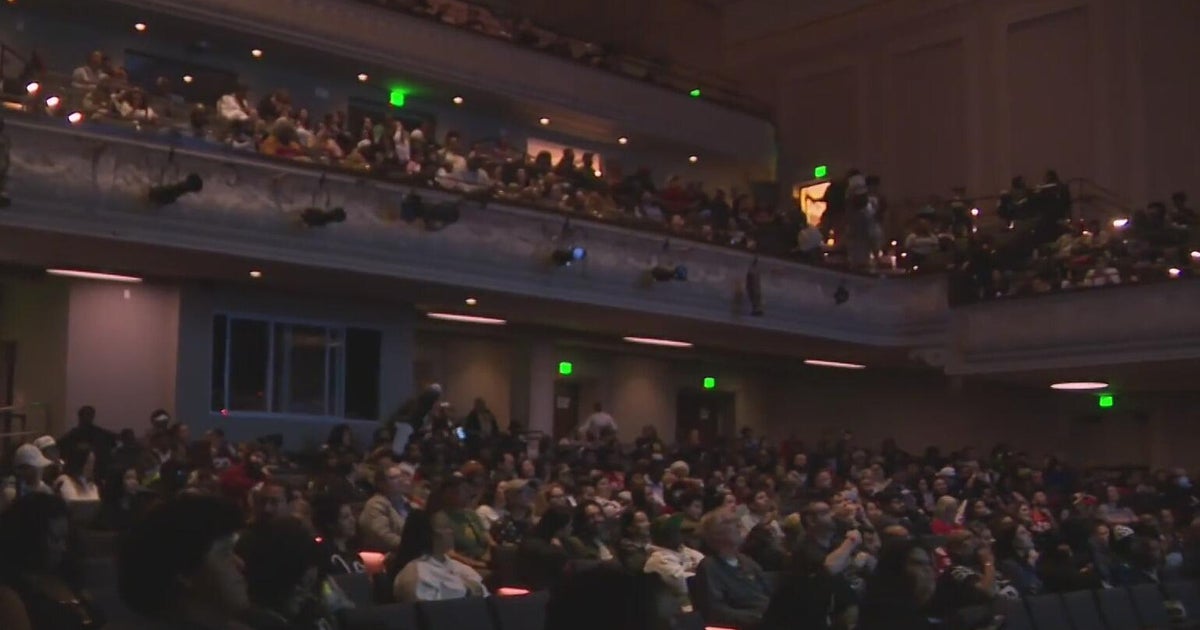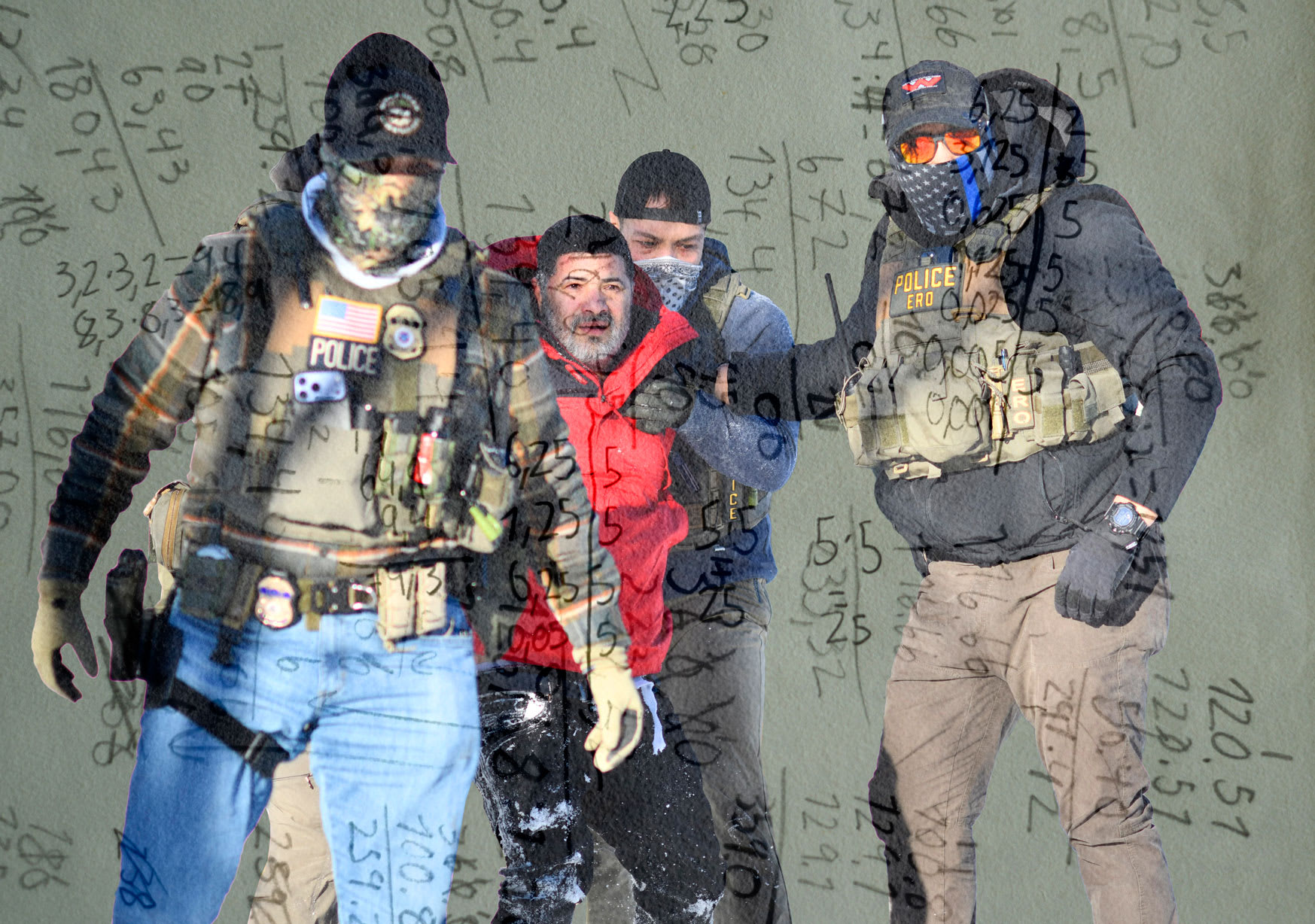Transcript: Rep. Henry Cuellar on "Face the Nation," Dec. 18, 2022
The following is a transcript of an interview with Rep. Henry Cuellar that aired on Sunday, Dec. 18. 2022, on "Face the Nation."
MARGARET BRENNAN: We now want to go to Democratic Congressman Henry Cuellar whose district covers about 200 miles of the US-Mexico border, including the city of Laredo. Good morning to you, Congressman.
REP. HENRY CUELLAR: Good morning to you, Margaret.
MARGARET BRENNAN: There are 8000 border crossings per day, that number could double according to estimates as soon as this week. You represent a lot of border patrol agents. Are they prepared? How is morale?
REP. CUELLAR: Well, first of all, morale is not good, because they feel that the administration doesn't have their backs. Number one, number two, are they prepared? No, even the $3 billion that you mentioned a while ago, that money is—is going to be used for processing, is going to be used for food and shelter and transportation and migrants. It doesn't address the issue that we're facing at the border. You know, there's thousands of people are coming in, but you got to look at one thing. In the last few years, we had over 35,000 rescues, Border Patrol saving people that could have died. We also have 1400 people that died, including children. Now, is this the most humane way that we are addressed asylum? No, I think what we need to do is have a pathway where they go through the bridges in an orderly way. And then, and then Margaret, if they don't follow that pathway, I think we need to send them back and say follow a way. I'll finish with this analogy quickly. It's like if somebody invites me to go to their house for lunch, but I decide to go through the back door and come through windows. I decide to bring a whole bunch of people, decide what hours I come in. It doesn't work that way we as a country need to set the asylum—
(CROSSTALK)
MARGARET BRENNAN: Right
REP. CUELLAR: procedures in place.
MARGARET BRENNAN: But as you know, it's extra complicated with Venezuelans and Haitians and Cubans and people who are coming that can't be sent back to their countries of origin. How do you solve for that?
REP. CUELLAR: Yeah, I mean, without a doubt, those three countries Cuba, Venezuela, Nicaragua, those are countries that are a little bit more complicated. But you know, the top fifteen countries include Colombia, Mexico, and includes also Peru, Ecuador, and in the top fifteen you also have Russia, India, Georgia, the state also and Turkey also. So in the top fifteen, people are understanding across the world that the back of the southern border is open.
MARGARET BRENNAN: Congressman, we have a lot more to talk to–talk to you about on this. So I want you to stay where you are. We have to take a quick commercial break. And we've asked all of you to stay where you are.
(COMMERCIAL BREAK)
MARGARET BRENNAN: Welcome back to Face The Nation. We want to continue our conversation now with Congressman Henry Cuellar. Congressman, in a letter to the President this week, you warned that this week when Title 42 lifts, they'll have a complete loss of operational control over the southern border. And that's going to have a profoundly negative impact on border communities. You know, the White House is saying that they've got a plan here. Why are you saying they don't? What is it that you are hearing?
REP. CUELLAR: You know, they've been talking about this plan for the last two years. They've been playing, they've been playing -blaming the Republicans have been blaming Congress. How long is this plan going to - take - what will it take into effect? I've seen that plan with all due respect. A lot of it deals with processing moving migrants from the border over to the interior. We need to have a way that we can have a policy where if Title 42 goes away, it looks like it's going to go away - unless if the Supreme Court steps in- if it goes away, they have to have a policy of a orderly pathway to asylum through our bridges. And if they don't follow that pathway, they need to go back, you know, they've got to have something in place. I've looked with all due respect. I've looked at that plan. And I don't think it's, you know, they've been talking about it. It hasn't worked. Now they're asking for the $3 billion or so, it's mainly for food and shelters, processing, transportation, but it doesn't really talk about security.
MARGARET BRENNAN:So you also pledged in this letter to work on bipartisan legislation. That's not going to get done in the next few days. What is it that you're envisioning in the new Congress that is going to be possible with a Republican controlled House?
REP. CUELLAR: Yeah, I mean, definitely, the–the only thing we can do is add more money. I don't know if it'll be the $3 billion, but there'll be monies there to meet the President's request for as much as possible, number one. Next year, I mean, it's going to be a show in so many ways and you know, impeaching the Secretary doesn't move us one inch closer to solving the issues, and I hope that we can have the President. The President can do this–can implement a policy of a orderly process for–for asylum at the bridges and if not, they go back. They gotta have a consequence. The President can do that. Because look, keep in mind in 2014 –
(CROSSTALK)
MARGARET BRENNAN: Through executive order?
REP. CUELLAR: Yeah, well–well look at it I mean President Obama didn't have immigration reform, didn't have all the things that people have been asking for, but he was able to manage the border in a much better place - a way. So the President, President Biden can do this. But with all due respect, I think his advisors are doing a disservice to him.
MARGARET BRENNAN: I'm sure the White House would say it's a hemispheric surge. It's worse than it's ever been. I–I want to get to something you've been raising consistently, is, you've been faulting President Biden for failing to visit the border. Policy experts would say, you know, photo op doesn't do much. To you, what does going to the border actually achieve? And do you think it's, the reason he hasn't gone is because the White House is afraid it's going to backfire that the border agents you're talking about will be disrespectful to him?
REP. CUELLAR: Well, look, there's different ways of visiting the border. He doesn't have to go there for just a photo op. But you know, a leader has to show images of being up there in the front. He–he can do that. He–he can do it in so many ways. And I'm not asking for a photo op. But I think that message that will go to not only the men and women in green and blue, but to the border communities–I'm more interested in the border communities will, say, hey, look, I'm the President of the United States. I'm here at the border, border communities, I feel your pain.
MARGARET BRENNAN: All right, Congressman, we will be watching what happens in the coming days. Good luck to you and your community. We'll be right back.



